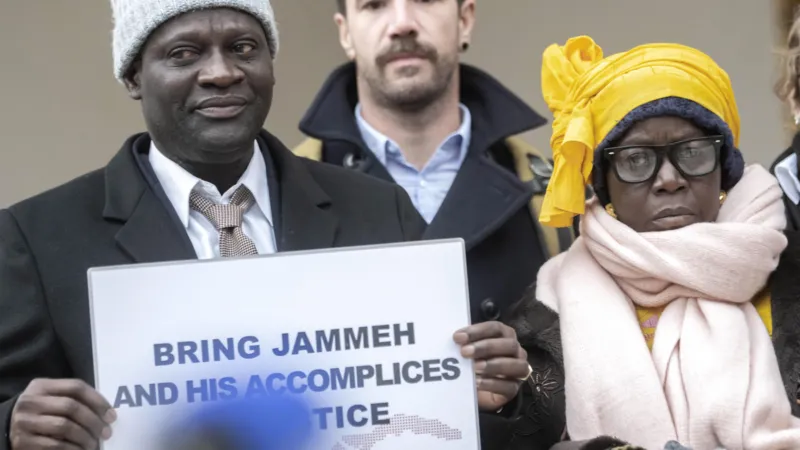
A Swiss court has sentenced Ousman Sonko, the former interior minister of The Gambia, to 20 years in prison for crimes against humanity. Sonko's tenure from 2006 to 2016 under the authoritarian regime of Yahya Jammeh was marked by severe human rights abuses, including torture, rape, and other forms of violence against political opponents and dissenters.
The trial, which took place at the Federal Criminal Court in Bellinzona, Switzerland, was notable for being conducted under the principle of universal jurisdiction. This legal principle allows national courts to prosecute individuals for serious crimes like crimes against humanity, war crimes, and genocide, regardless of where the crimes were committed. This case is only the second of its kind in Switzerland and sets a significant precedent for the prosecution of international crimes within the country.
Sonko fled to Switzerland in 2017 after being dismissed from his position and applied for asylum. His arrest followed a complaint by TRIAL International, a Geneva-based NGO that advocates for the prosecution of international crimes. The organization argued that Sonko should be held accountable for his role in the brutal repression carried out by Gambian security forces, which included acts of sexual violence, torture, and unlawful detentions.
Throughout the trial, Swiss prosecutors presented compelling evidence that Sonko had directly participated in and failed to prevent systematic attacks against opponents of the Jammeh regime. These attacks included the use of torture and sexual violence, which were employed as tools of repression. Victims and witnesses provided harrowing testimonies detailing the abuse they suffered, including beatings, electric shocks, and other forms of torture.
Sonko's defense team attempted to challenge the jurisdiction of the Swiss court, arguing that some of the alleged crimes occurred before the enactment of relevant Swiss laws and should not be applied retroactively. However, the court upheld its jurisdiction, citing Switzerland’s commitment to international conventions against torture and other inhumane acts. The court ruled that the severity and nature of the crimes warranted prosecution under the principle of universal jurisdiction.
The court’s decision to convict Sonko is a landmark in the fight against impunity for human rights abuses. It underscores the international community's growing willingness to hold perpetrators of serious crimes accountable, regardless of their official positions or the locations of their crimes. This case also highlights the importance of NGOs and international advocacy groups in bringing such cases to light and supporting victims in their quest for justice.
The verdict has been welcomed by human rights activists and victims' groups, who see it as a significant step towards accountability for the abuses committed during Jammeh’s rule. It also serves as a reminder to other former officials that they can be held accountable for their actions, even years after the crimes were committed.
Overall, the conviction of Ousman Sonko represents a crucial victory for human rights and the rule of law, demonstrating that justice can prevail even in cases involving complex international crimes.















